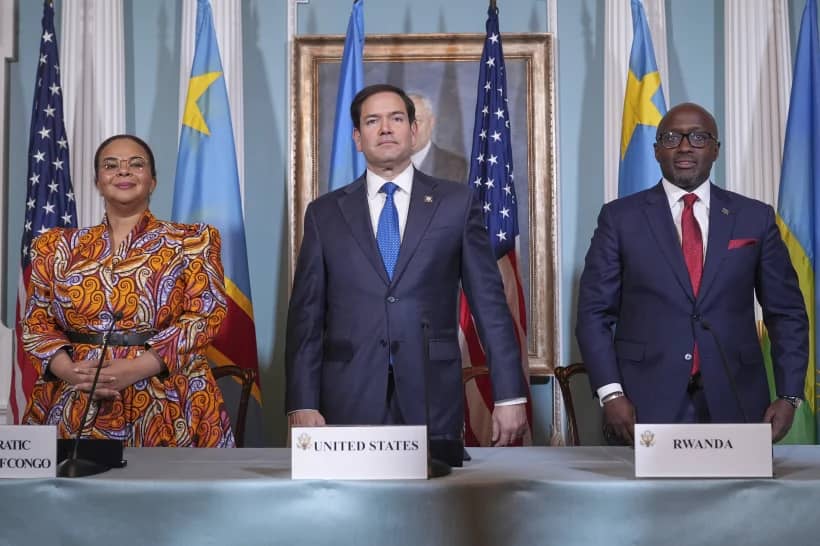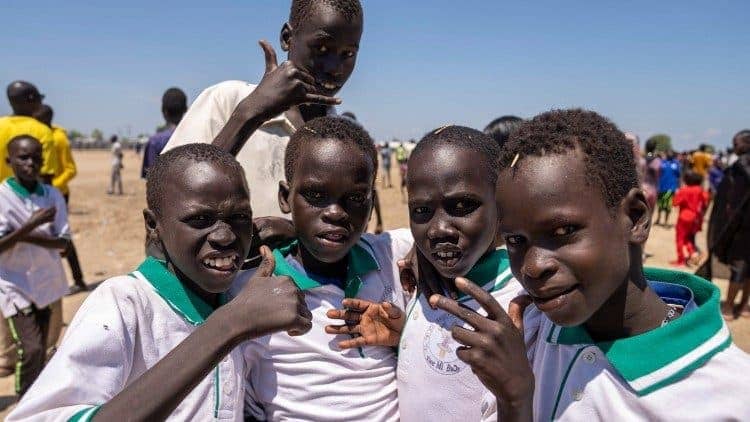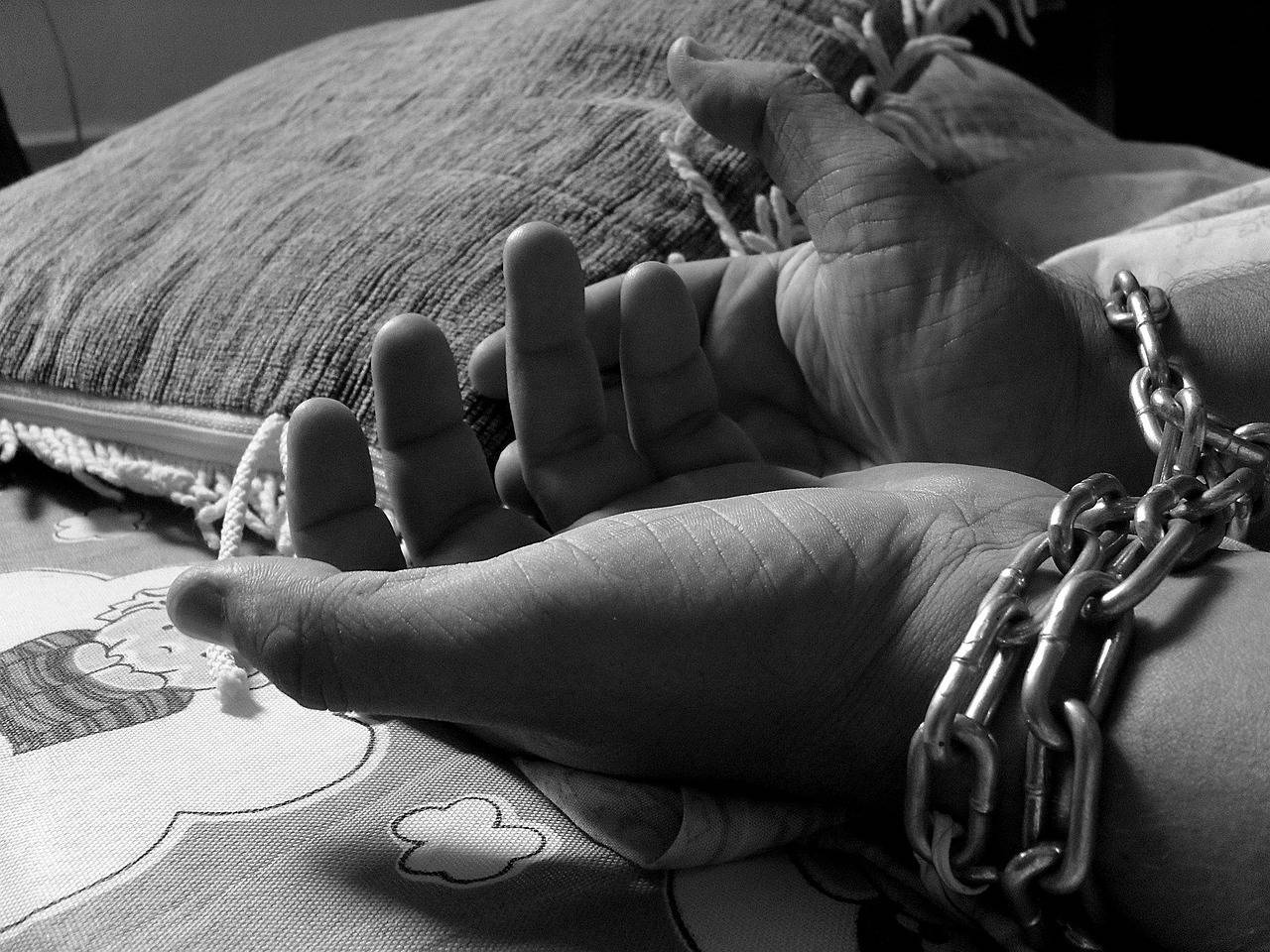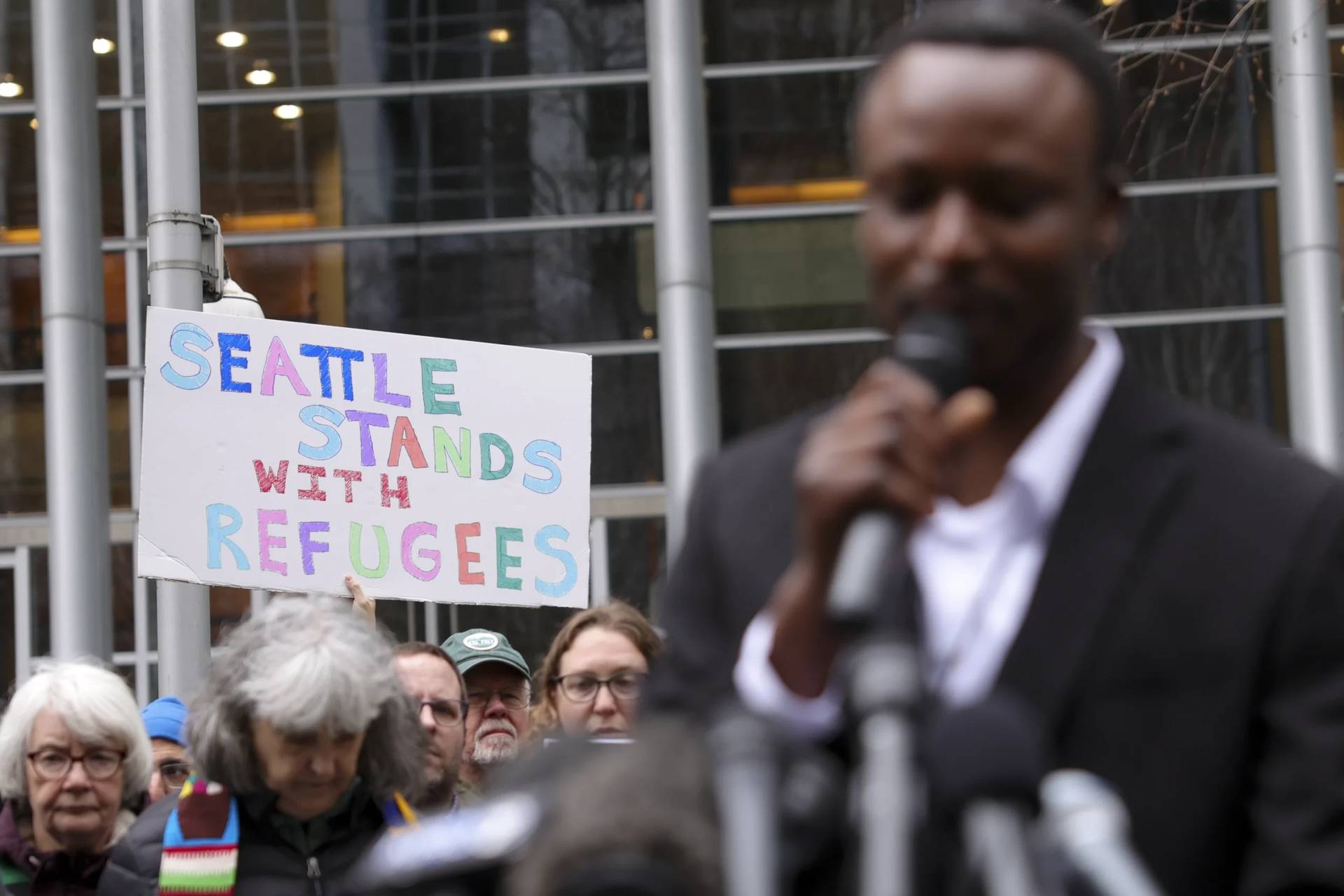YAOUNDÉ, Cameroon – Security in Africa’s Sahel region has “deteriorated significantly” over the past year, according to one of the largest Catholic development agencies.
The arid Sahel region – located at the borderland between North Africa and sub-Saharan Africa – has been plagued by attacks from various Islamist groups, including some aligned with Al Qaeda and Islamic State. Mali, Niger and Burkina Faso have been particularly affected.
“The region has long experienced chronic poverty, governance challenges, porous borders and food insecurity, but extremist groups are becoming more brazen in their attacks on the most vulnerable people,” said Jennifer Overton, the regional director for Catholic Relief Services (CRS), the official international developmental aid agency of the U.S. bishops.
“Rising youth unemployment, an increasing number of extreme climate events and limited access to basic services like healthcare are some of the big drivers of the humanitarian disaster currently unfolding in the region,” Overton told Crux.
“The security situation in the Sahel has deteriorated significantly over the past year, especially in Burkina Faso, where approximately 500,000 people have been forced to flee their homes. Niger and Mali, too, are facing the brunt of armed violence in the region,” she said.
Islamist militants with links to al-Qaeda and so-called Islamic State have continued to extend their reach across the region, even as they lose ground in the Middle East.
According to ECOWAS, a regional body for West Africa, over 2,200 terrorist attacks have taken place across the Sahel in the last four years, resulting in the deaths of 11,500 people. Thousands more have been wounded and millions of others displaced.
The Islamist insurgency is also stoking inter-tribal and ethnic tensions in the region, exacerbating the problem.
Overton said thousands now have no access to education and healthcare, and the specter of food insecurity has reached alarming levels; 1.8 million people are facing critical food insecurity, according to the United Nations.
“Many people affected by the violence were already facing serious difficulties,” said Mbaranga Gasarabwe, the UN resident coordinator in Mali. “For them it is a double disaster.”
In 2012, the militants largely operated in northern Mali, where they joined forces with separatist Tuareg rebels to take over a number of strategic towns, including the legendary city of Timbuktu.
In January 2013, French forces dislodged them, but they later regrouped and spread into Central Mali, Burkina Faso and the Tahoua and Tillaberi regions of southwestern Niger.
And the spread of the insurgency has been aided by geography: The Sahel’s vast desert and porous borders make the flow of arms from Libya relatively easy. In addition, all three of the most affected countries have a weak state sector, ranking among the 10 least developed countries on earth, according to the UN’s Human Development Index.
While jihadist groups used to primarily target government officials, soldiers and local leaders who opposed them, they are now attacking ordinary civilians and entire villages.
Churches are also a popular target, with Islamist groups trying to force the Christian population to convert to Islam or flee the region.
Burkina Faso is 60 percent Muslim, with Christians making up about a quarter of the population. Mali is around 90 percent Muslim, with Christians making up about 5 percent of the population. Niger is over 99 percent Muslim, with just 0.3 percent Christian.
Jihadist groups are also targeting employees and volunteers from relief organizations, making it hard for them to address the deteriorating humanitarian crisis.
Despite these problems, CRS is trying to respond the best it can.
“CRS is currently helping more than 22,000 families in Mali, Burkina Faso and Niger by providing clean water, food and shelter – both displaced families and host communities,” Overton told Crux.
“We are continuing long-term development projects in the region, including healthcare, education, and agricultural and peace building projects, with the goal of preventing and mitigating future humanitarian and security crises. Intercommunity dialogue is helping leaders work together and addresses the vital need for peace.”
In the face of the rising insecurity and the multi-thronged development challenges, The G5 Sahel countries – Burkina Faso, Chad, Mali, Mauritania and Niger – created a Joint Task Force to deal with militant groups.
The cross-border force was launched on July 2, 2017 in Mali.
The force is authorized to have 5000 soldiers for fighting terrorism, cross-border organized crime, and human trafficking in the Sahel region. It’s very first operation involved the armies of Burkina Faso, Mali and Niger, and was carried out in November 2017.
However, the militants have begun hitting back, most recently when al-Qaida-linked fighters attacked two army bases in central Mali, killing at least 38 soldiers and leaving more than a dozen missing.
While a military component is necessary for the region, Overton said it should be accompanied by a robust humanitarian action.
“CRS urges national governments in the region to balance their military investments with at least equal attention to humanitarian aid and development work in their countries,” she told Crux.
“These humanitarian programs can provide lifesaving assistance to those most vulnerable while also working to stop any future violence,” she added.
Crux is dedicated to smart, wired and independent reporting on the Vatican and worldwide Catholic Church. That kind of reporting doesn’t come cheap, and we need your support. You can help Crux by giving a small amount monthly, or with a onetime gift. Please remember, Crux is a for-profit organization, so contributions are not tax-deductible.
















